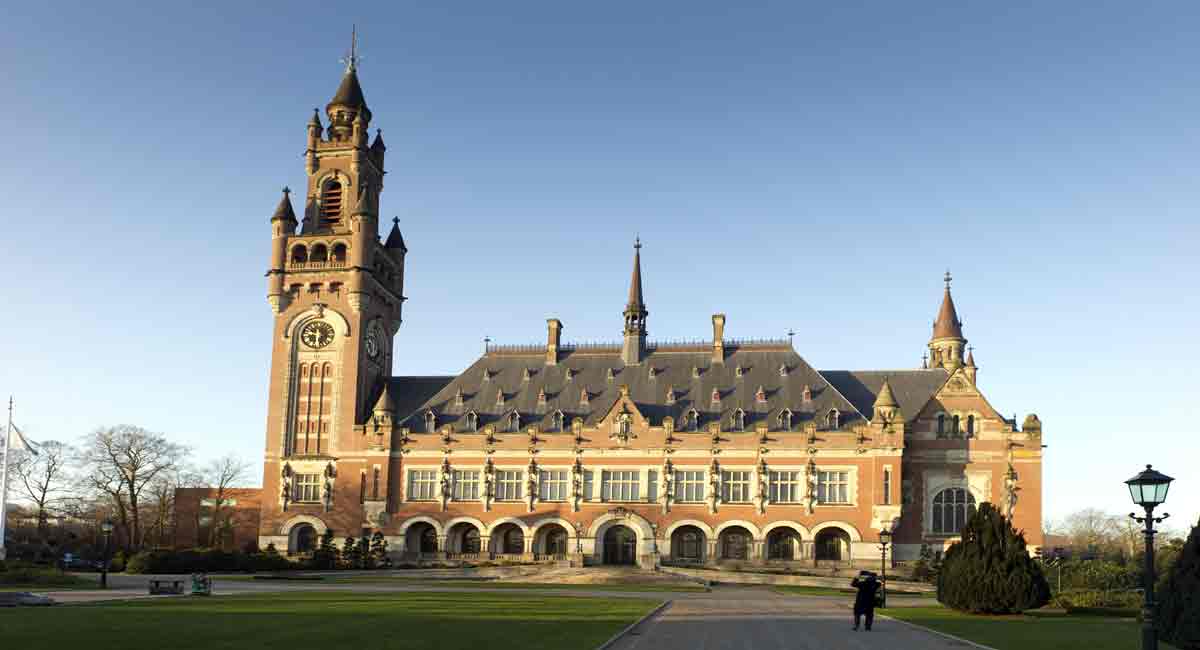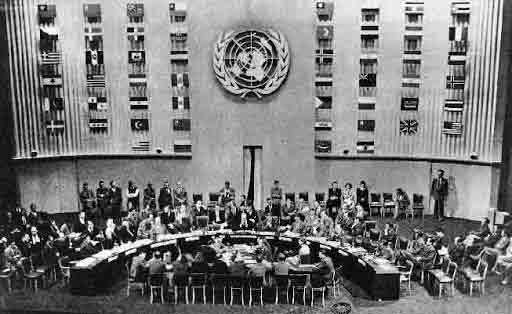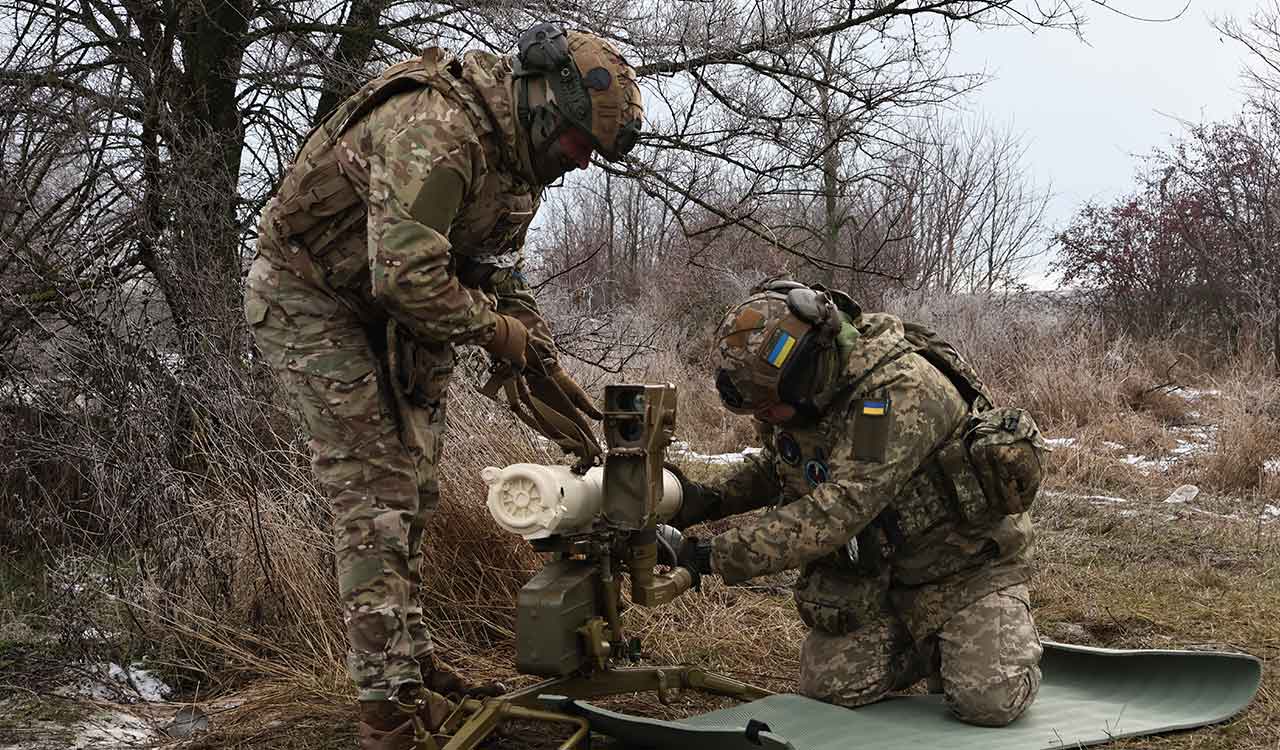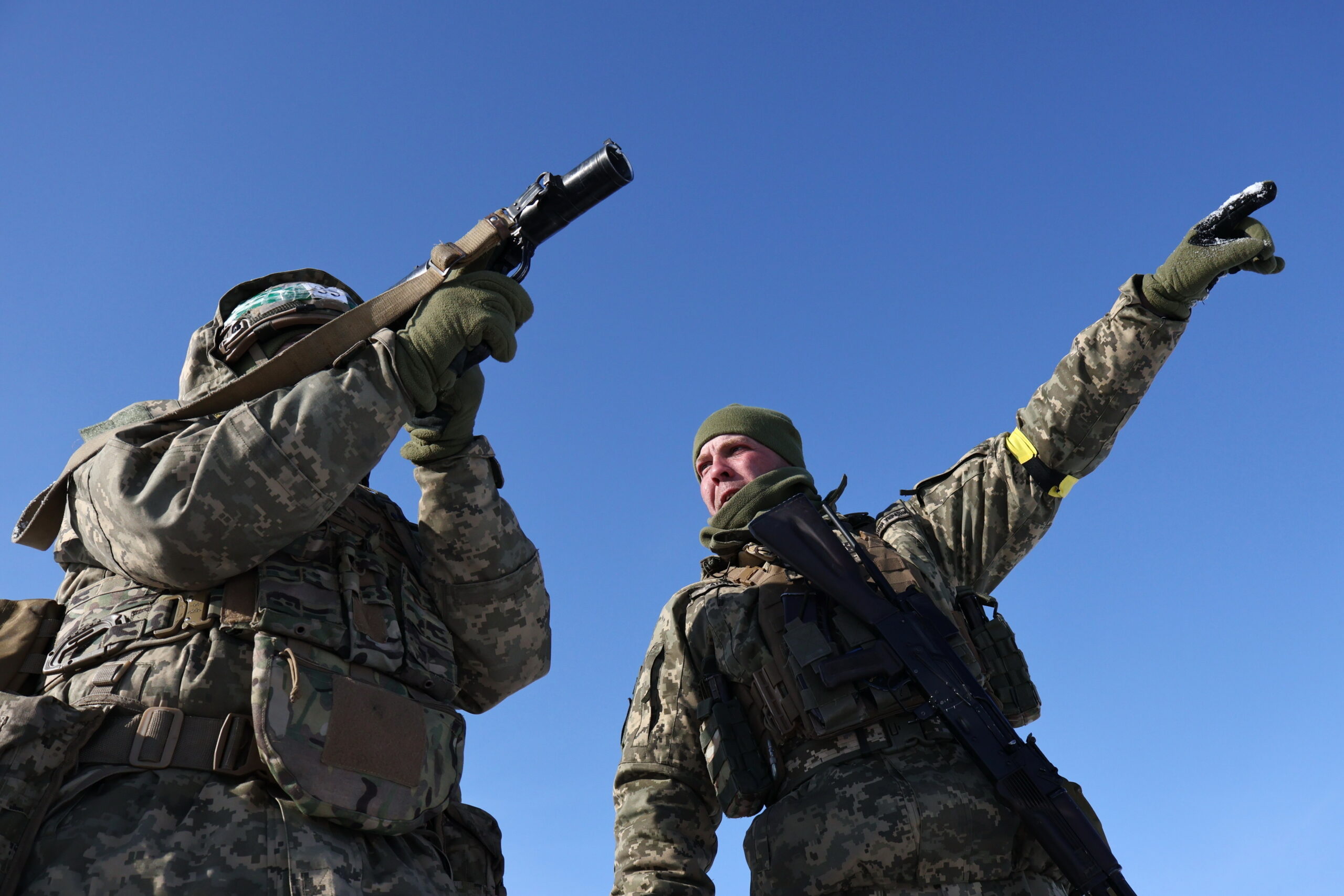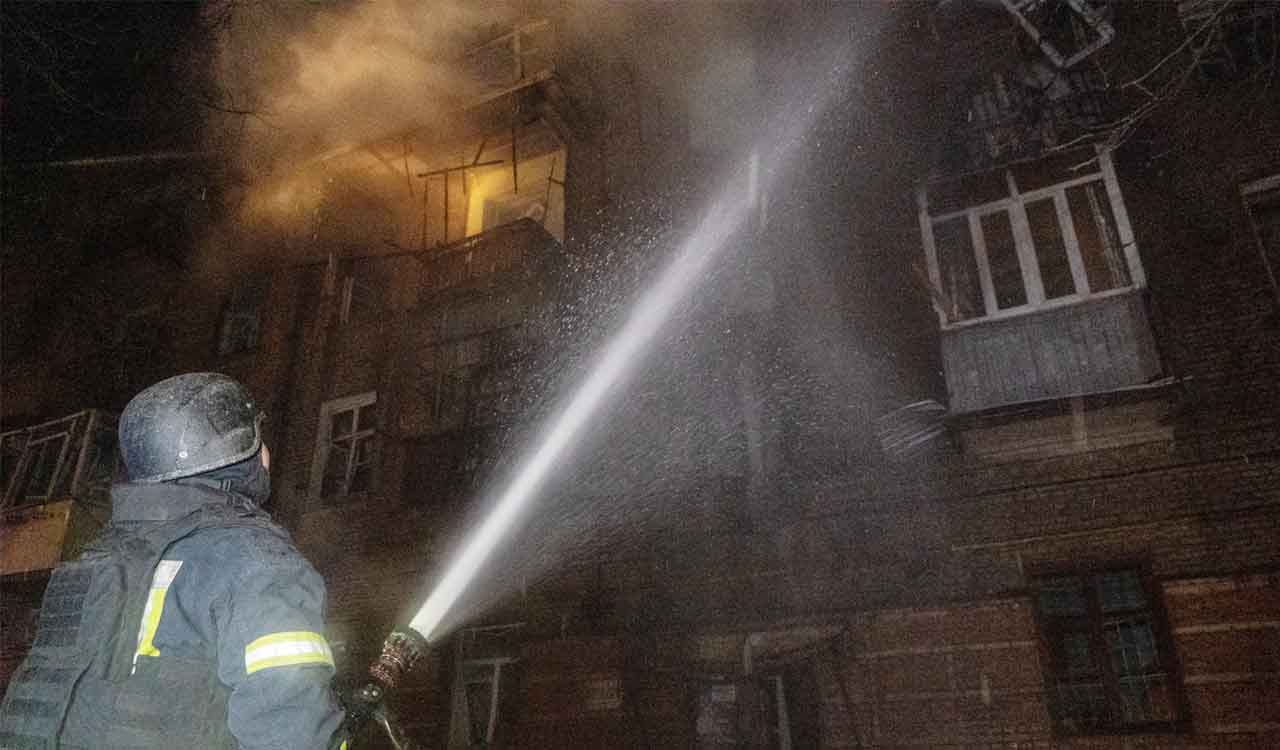All you need to know about International Court of Justice
Hyderabad: Ukraine has filed a suit with the International Court of Justice in The Hague against Russia. President Volodymyr Zelensky said that Russia must be held accountable for “manipulating the notion of genocide to justify aggression”. Ukraine “emphatically denied” any occurrence of a genocide in the country’s eastern regions of Luhansk and Donetsk. The dispute […]
Hyderabad: Ukraine has filed a suit with the International Court of Justice in The Hague against Russia. President Volodymyr Zelensky said that Russia must be held accountable for “manipulating the notion of genocide to justify aggression”. Ukraine “emphatically denied” any occurrence of a genocide in the country’s eastern regions of Luhansk and Donetsk. The dispute is concerning 1948 Convention on the Prevention and Punishment of the Crime of Genocide (the “Genocide Convention”). Read here the functions of ICJ and what the Genocide Convention is all about…
The ICJ is the principal judicial organ of the United Nations (UN). It is the only one of the six principal organs of the UN that is not located in New York City. ICJ was established in June 1945 by the Charter of the UN and began work in April 1946.
Role of ICJ
Its role is to settle, following international law, legal disputes submitted to it by States and to give advisory opinions on legal questions referred to it by authorized UN organs and specialized agencies.
Administration and jurisdiction
The judges of the court are assisted by a Registry, the administrative organ of the ICJ. The official languages are English and French.
All members of the UN are automatically parties to the ICJ statute, but this does not automatically give the ICJ jurisdiction over disputes involving them.
The ICJ gets jurisdiction only if both parties consent to it. The judgment of the ICJ is final and technically binding on the parties to a case. However, the ICJ has no way to ensure compliance of its orders.
Election of judges
The ICJ has 15 judges who are elected to nine-year terms by the UN General Assembly and Security Council, which vote simultaneously but separately.
To be elected, a candidate must receive a majority of the votes in both bodies, a requirement that sometimes necessitates multiple rounds of voting. Elections are held at the UNHQ in New York during the annual UNGA meeting.
A third of the court is elected every three years. The president and vice-president of the court are elected for three-year terms by secret ballot. Judges are also eligible for re-election.
Indian Judges at ICJ
Four Indians have been members of the ICJ so far. Justice Dalveer Bhandari, former judge of the Supreme Court, has been serving at the ICJ since 2012.Former Chief Justice of India RS Pathak served from 1989-91. Former Chief Election Commissioner of India Nagendra Singh was a judge from 1973-88. Sir Benegal Rau, who was an advisor to the Constituent Assembly, was a member of the ICJ from 1952-53.
Genocide Convention 1948
The Convention on the Prevention and Punishment of the Crime of Genocide (Genocide Convention) is an instrument of international law that codified for the first time the crime of genocide.
The Genocide Convention was the first human rights treaty adopted by the General Assembly of the UN on 9 December 1948. It signified the international community’s commitment to ‘never again’ after the atrocities committed during the Second World War.
India is a signatory to this convention.
According to the Genocide Convention, genocide is a crime that can take place both in time of war as well as in time of peace. The definition of the crime of genocide, as set out in the Convention, has been widely adopted at both national and international levels, including in the 1998 Rome Statute of the International Criminal Court (ICC).
The Convention establishes on State Parties the obligation to take measures to prevent and to punish the crime of genocide.
Now you can get handpicked stories from Telangana Today on Telegram everyday. Click the link to subscribe.
Click to follow Telangana Today Facebook page and Twitter .
Related News
-
PM Modi becomes most followed world leader on Instagram with 100 million followers
5 hours ago -
Will fix accountability, take action against those involved: Education minister on NCERT row
5 hours ago -
PM Modi and PM Netanyahu hold talks to solidify India-Israel strategic ties
5 hours ago -
Nabi takes Jammu and Kashmir in command as Karnataka struggles in Ranji Trophy final
5 hours ago -
Traffic curbs imposed at Jubilee Hills check post for flyover works
5 hours ago -
Proteas crush West Indies by nine wickets to boost T20 World Cup semifinal hopes
5 hours ago -
Abhishek Sharma, Hardik Pandya lead India to 72-run victory over Zimbabwe
6 hours ago -
Kasheem century helps Sports XI CC clinch 39th D Sekhar Rao Memorial final
6 hours ago

